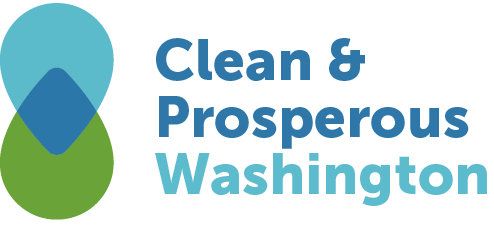Dollars & sense
Thanks to the Climate Commitment Act, it’s no longer free to pollute in Washington state.
But was it ever? As they say, “there’s no such thing as a free lunch”. Everything has a price, and that price must be paid by someone. Historically we’ve paid the price of pollution with our lungs and our health – and now increasingly with our wallets as carbon-fueled climate change raises the cost of insurance, food, healthcare, and so much more. (In fact the average cost of home insurance has increased roughly 20% in two years.)

David Horsey, The Seattle Times
A recent Nature study demonstrates that rising temperatures lead to rising prices:
Another as-they-say: “You can’t manage what you don’t measure.”
Economists calculate the cost of damages we all pay for each ton of carbon emissions as the “social cost of carbon”. How is the social cost of carbon calculated? According to the Brookings Institution,
“When calculating the social cost of carbon, climate scientists and economists create models to predict what will happen to a range of indicators when new carbon dioxide is put into the atmosphere. Among these indicators are health outcomes, agricultural production, and property values. An extra ton of carbon emissions shortens lifespans, hurts crops, and causes sea levels to rise, decreasing property values. An SCC of $51 means that economists and climate scientists expect the total damages from an extra ton of carbon emissions to equal $51 a ton.”
The official U.S. government estimate of $51/ton was recently re-calculated by the EPA to $190/ton.
Is that a fair price for polluters to impose on the general population? Or should they be accountable for the cost of their emissions? Washington state’s Cap-and-Invest Climate Commitment Act makes them accountable for their pollution. It affords covered entities a choice: to clean up their operations, or pay-the-piper to pollute. At $53/ton, the 12-month average CCA auction price of emission allowances is a fraction of the $190/ton EPA social cost of carbon. This demonstrates that a market mechanism can drive down emissions at the most cost-effective price.
Washington State Representative Beth Doglio describes the Climate Commitment Act this way:
“Washington’s largest polluters must pay for their pollution AND reduce their pollution over time. The CCA channels pollution payments back into communities, benefiting families, schools, workers, and more. Projects supported by the CCA improve health and safety, through incentives to install cleaner HVAC systems in schools, homes and businesses. The program reduces air pollution, supporting the transition to zero-emission vehicles, and funds clean transportation options and transit.”
In other words, thanks to the Climate Commitment Act, pollution now has a price tag, meaning that over time, our lungs, our health, and our wallets will pick up less and less of the pollution tab. And that’s just good, common sense.

